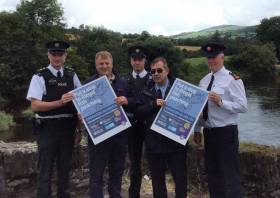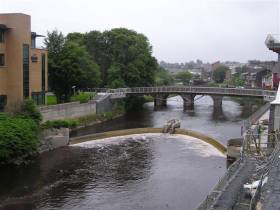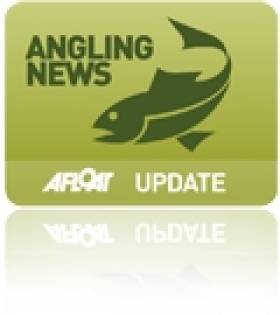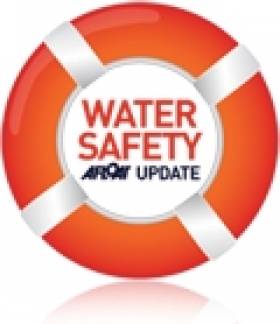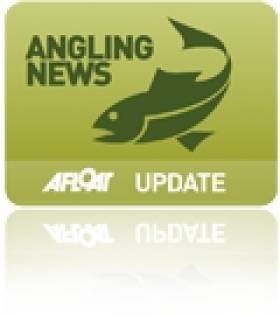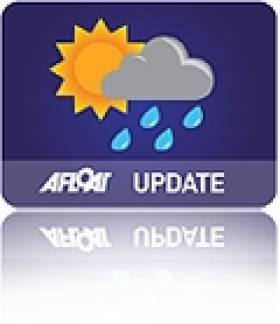Displaying items by tag: Tyrone
Fish Kill ‘Massacre’ After Slurry Spill in Co Tyrone River
Anglers in Northern Ireland have described a “massacre” on a Co Tyrone river after a slurry spill resulted in a major fish kill incident, prompting an official investigation into the source.
The spill on the Claggan River was discovered last weekend with Ballinderry Rivers Trust reporting that “thousands of litres of slurry” were moving downstream to the Killymoon River near Cookstown.
According to Coagh Angling Club, a “massacre” of fish — including young salmon and native dollaghan, as well as breeding and baby trout and eggs — was witnessed several miles upstream of its waters.
On Tuesday (29 March) another incident was reported on a tributary above Coagh weir, where the waters appeared “green with slurry”.
The club’s John Hagan told the Belfast Telegraph that it will take years to recover from the environmental damage.
“We don’t know the full environmental impact of it just yet, but we do know that there's probably about 12-15 miles of river near the source of the Ballinderry which is just dead,” he said.
The Belfast Telegraph has more on the story HERE.
Works to restore watercourses impacted by a bogslide in the North West last year could take “a number of years” to complete, according to the Loughs Agency.
As previously reported on Afloat.ie, anglers in Donegal and Tyrone fear that the peat slippage near a wind farm development at Meenbog has made an important salmon fishery uninhabitable.
Video of the incident, which saw thousands of tonnes of bogland slide into the River Derg system, went viral on social media in early November 2020.
A working group was established in the wake of the incident and this multi-agency, cross-border group continues to meet on an ongoing basis to coordinate the plan of action, the Loughs Agency says.
“Construction works on the windfarm site where the peat slide originated remain suspended, with the exception of the maintenance of measures required to mitigate the threat of further pollution or those required to safeguard health and safety,” it adds.
Following a direction to the windfarm developer from the Environment Protection Agency (EPA), an updated assessment by independent consultants of peat stability on the site is currently under way.
In addition, a “phased approach to the restoration of areas impacted by the peat slide” has been adopted, the Loughs Agency says.
The first phase began in the last few weeks, undertaken by the windfarm developer under direction of Donegal County Council and the Northern Ireland Environment Agency, and involves restoration of the lower reaches of the Shruhangarve stream and a planting scheme “to mitigate against the deterioration of the peat slide scar”.
The Loughs Agency says it has appointed a fisheries scientist to coordinate further restoration works that may be required for the Mourne Beg and other rivers downstream, and which may require statutory consent.
But it also advises that “given the seasonal restrictions that may apply”, such remediation works “will take a number of years to complete”.
‘Operation Silver Fin’ To Tackle Fish Poaching In Co Tyrone
The Loughs Agency has teamed up with police on both sides of the border and a local wildlife group in a joint initiative to tackle fish poaching in Co Tyrone, as Independent.ie reports.
‘Operation Silver Fin’ will take on the scourge of wildlife crime in the area, with a focus on enforcing existing fishing regulations to protect an important angling resource.
Fish poaching, which uses long lines and nets, is only permitted in certain areas — while anyone angling requires a licence and must follow strict rules around where, when and how they fish.
Independent.ie has more on the story HERE.
Tyrone Fish Farm Escapees Number In Hundreds Of Thousands
#Angling - Hundreds of thousands of rainbow trout escaped from a commercial fish farm in Co Tyrone last year, according to the Loughs Agency.
BBC News has details on the cross-border body’s report into the incident on the River Strule at Newtownstewart in August 2017, which estimates some 387,000 female rainbow trout entered the river system.
Despite concerns over potential widespread impact on the wild salmon and trout fishery in the area, it’s believed the majority are still concentrated in the lower Strule, lower Derg and upper Mourne.
Local anglers are asked to continue taking the farmed fish from these rivers and reporting their catches, particularly from important spawning grounds, as mass removal is not an option.
Tyrone Lough To Be Revived For Angling
#Angling - Plans are afoot to turn Roughan Lough in Co Tyrone into a training lake for Northern Ireland's angling team, as the Tyrone Times reports.
New fishing stands and access for the differently abled are among the plans of the new Roughan Anging Club, which has a 10-year lease on the 50-acre lake that was until three decades ago stocked by the northern region predecessor to Inland Fisheries Ireland.
Reputed to be full of large pike, its intended that the waters will be stocked with rainbow trout and make it a new destination for anglers across Ireland and beyond.
The Tyrone Times has more on the story HERE.
Four More Drownings Bring Renewed Water Safety Appeal
#WaterSafety - Four more people have drowned in separate incidents around Ireland as the heatwave continues.
As RTÉ News reports, a 24-year-old man died while swimming in the sea near Ardara in Co Donegal yesterday afternoon (20 July).
Later, the body of a second victim was recovered from the Shrule River in Newtownstewart, Co Tyrone after getting into difficulty.
A third man in his 60s is was drowned after failing to return from a swim in a quarry near Carrick-on-Suir. His body was recovered earlier today.
The tragedies follow news of a 19-year-old who drowned while swimming with friends in Lough Leane in Killarney on Friday evening (19 July).
And a woman in her 30s was lucky to be rescued after getting into difficulty swimming in the River Nore near Kilkenny. She is currently in a serious but stable condition in hospital.
Irish Water Safety have renewed their appeal for the public to take extra care when taking to the water during this extraordinary hot weather that had already claimed seven lives as of Thursday last.
Special Angling Event Produces First Salmon of 2012
#ANGLING - The first wild Atlantic spring salmon of 2012 was caught Sunday on the River Liffey in exceptional circumstances, The Irish Times reports.
Though the river is closed for salmon fishing as stocks are currently below sustainable levels, Inland Fisheries Ireland sanctioned a special catch-and-release club event for survey reasons at Islandbridge in the capital.
Declan Briggs – a 47-year veteran of the Dublin and District Salmon Anglers' Association - landed the 8.5lb beauty using a wooden Devon lure at 9.50am.
“This is my first time to catch the first fish. I’m absolutely delighted," he said.
Elsewhere in Ireland, Briggs' catch was mirrored by Tyrone man Ian Martin, who caught the northern region's first salmon on the year on the River Drownes near Bundoran.
The Irish Times has more on the story HERE.
NI Recovers After Battering by Hurricane Katia
Northern Ireland is recovering after Hurricane Katia left power cuts and travel distruption in its wake.
As previously reported on Afloat.ie, the remains of Hurrican Katia had been expected to strike hardest in the northern half of Ireland.
The Belfast Telegraph reports that Derry, Antrim and Tyrone were worst hit by winds that reached speeds of up to 120kph on Monday.
There was widespread disruption to rail and ferry services, while drivers reported hazardous conditions. The Foyle Bridge was closed to all high-sided vehiches for a time.
Some 700 homes across Northern Ireland suffered a blackout when powerlines were cut and by falling trees and windborne debris, though power was mostly restored by Tuesday evening.
Though downgraded to tropical storm status after crossing the Atlantic, Katia's high winds wreaked similar havoc south of the border, with power cuts to over 13,000 homes in six different counties - half of them in Donegal alone.
Wind gusts of an incredible 137kmh were recorded on Arranmore Island.
The Belfast Telegraph has more on the story HERE.



























